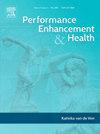Knowledge, attitudes and practices of gym users towards the use of dietary supplements–A systematic review
IF 3.7
Q2 HOSPITALITY, LEISURE, SPORT & TOURISM
引用次数: 0
Abstract
Dietary supplements (DS) are products that are taken alongside the usual diet and utilized to attain a particular health result or enhance exercise performance. DS are increasingly popular among the general population, including gym users without sufficient knowledge. This systematic review aims to understand the sources of knowledge, reasons for supplement usage, and practices of DS usage among gym users. A systematic search in PubMed, Web of Science, and Scopus was performed to identify the cross-sectional survey-based studies, published between 2013 and 2023, related to knowledge, attitudes, and practice of DS use among gym users. The risk of bias was assessed using the Risk of Bias Instrument for Cross-Sectional Surveys of Attitudes and Practices. A total of 24 eligible studies were included in this review. These studies were conducted in: Africa (n = 3), Asia (n = 6), Europe (n = 6), and South America (n = 1). Participants in the included studies were gym users (n = 9202) with the total supplement users being (n = 5370). Results showed that there is a high prevalence of supplement usage among gym users, the internet and media were the most used sources of information, healthcare improvement is the most reported reason for supplement usage, and protein supplements are the most used type of supplements. These findings suggest that there should be more attention to sources of information on the use of dietary supplements with the finding of a high prevalence of dietary supplement usage accompanied by the prevalent use of non-trustworthy sources of information, such as the internet, media and non-healthcare professionals.
健身房使用者对使用膳食补充剂的认识、态度和做法--系统性综述
膳食补充剂(DS)是与日常饮食一起服用的产品,用于达到特定的健康结果或增强运动表现。DS在普通人群中越来越受欢迎,包括没有足够知识的健身房用户。这篇系统的综述旨在了解知识的来源,补充使用的原因,以及健身房用户使用DS的实践。在PubMed、Web of Science和Scopus中进行了系统搜索,以确定2013年至2023年间发表的基于横断面调查的研究,这些研究与健身房用户使用DS的知识、态度和实践有关。使用态度和实践横断面调查偏倚风险工具评估偏倚风险。本综述共纳入了24项符合条件的研究。这些研究分别在非洲(n = 3)、亚洲(n = 6)、欧洲(n = 6)和南美(n = 1)进行。纳入研究的参与者是健身房使用者(n = 9202),补充剂使用者总数为(n = 5370)。结果显示,健身房用户使用补充剂的比例较高,互联网和媒体是最常用的信息来源,健康改善是使用补充剂的最主要原因,蛋白质补充剂是使用最多的补充剂类型。这些发现表明,我们应该更加关注膳食补充剂使用的信息来源,因为膳食补充剂的使用非常普遍,同时也普遍使用不可靠的信息来源,比如互联网、媒体和非医疗专业人员。
本文章由计算机程序翻译,如有差异,请以英文原文为准。
求助全文
约1分钟内获得全文
求助全文
来源期刊

Performance enhancement and health
Social Sciences-Health (social science)
CiteScore
4.70
自引率
0.00%
发文量
27
审稿时长
57 days
 求助内容:
求助内容: 应助结果提醒方式:
应助结果提醒方式:


